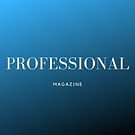The Future of Work: Navigating the New Hybrid Economy
- Professional Magazine

- May 16, 2025
- 2 min read

The modern workplace is undergoing a seismic shift. Gone are the days of rigid office schedules and one-size-fits-all career paths. In 2025, professionals are redefining success through flexibility, adaptability, and a deep embrace of digital transformation. But what does that mean for those looking to thrive in this new hybrid economy?
The pandemic accelerated remote work, but what emerged afterward was a model that balances in-person collaboration with digital efficiency. Hybrid work is no longer a temporary solution—it is the new standard. Executives and entrepreneurs alike are now reevaluating traditional office structures, questioning whether expensive headquarters are still necessary when talent can operate from anywhere.
For professionals, this presents both opportunities and challenges. The ability to work remotely has opened doors to global talent pools, meaning competition is fiercer than ever. The most successful individuals are those who cultivate a strong personal brand, demonstrating not only technical expertise but also the ability to lead and innovate from a distance.
Collaboration tools have become the backbone of the hybrid workforce. Platforms like AI-driven project management systems and virtual reality conferencing are making remote engagement more dynamic. But technology alone cannot replace the need for emotional intelligence. Leaders who foster engagement and motivation across digital spaces will set themselves apart from those who rely solely on automation.
Another major trend shaping the future of work is the rise of skill-based hiring. Companies are shifting away from credential-driven recruitment and focusing on competency, adaptability, and specialized knowledge. Degrees still matter, but real-world application and problem-solving are taking precedence over formal qualifications.
Professionals looking to grow must embrace continuous learning. Micro-certifications, industry-specific training, and the ability to pivot into emerging fields will be key to staying competitive. The workplace is no longer a static environment—it is a constantly evolving ecosystem that rewards agility, foresight, and digital fluency.
Ultimately, the future of work is about balance. It is about blending the efficiency of technology with the irreplaceable value of human creativity and connection. Those who understand this equilibrium will not only succeed but will lead the next generation of business innovation.
.jpg)



Comments